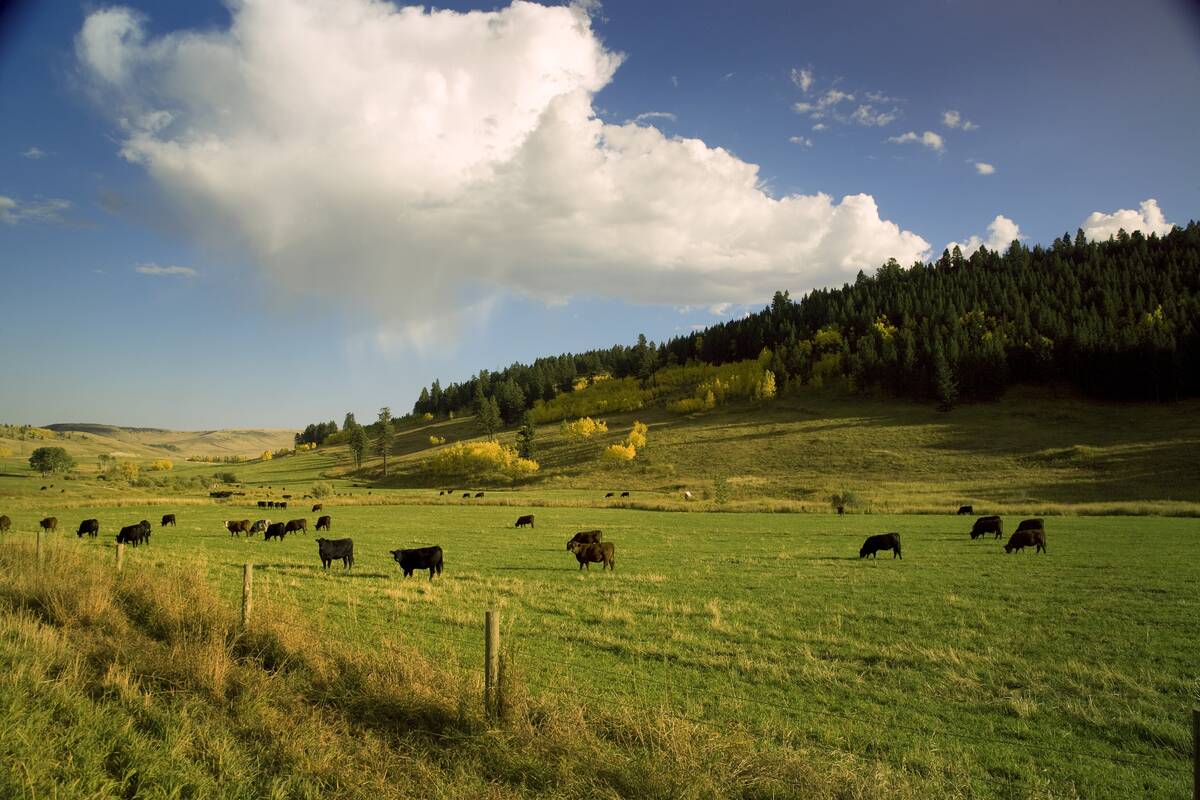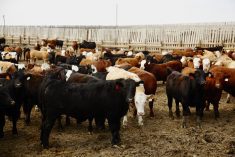The Canadian Cattlemen’s Association (CCA) congratulates Prime Minister JustinTrudeau and Foreign Minister Chrystia Freeland on reaching an agreement that preserves and secures the duty-free access upon which the Canadian beef cattle sector has built over the past 25 years.
This is particularly important as we enter the time of year when the majority of beef calves in Canada are marketed. Cattle buyers can feel confident about the long-term stability of the market and compete aggressively to acquire calves.
The new United States, Mexico and Canada Agreement (USMCA), once ratified via the legislative processes of the three countries, will update, modernize and replace the North American Free Trade Agreement (NAFTA). In the meantime, the existing NAFTA remains solidly in place.
Read Also

The Canadian Cattle Association’s international advocacy efforts
Global ag policies affect Canadian food policy, so the Canadian Cattle Association participates in international and domestic forums
In addition to preserving duty-free trade in live cattle and beef, producers are pleased that the existing rules of origin and dispute settlement provisions remain intact.
Two new chapters on good regulatory practices and competitiveness are of great interest to Canadian beef producers. There is ongoing interest to address regulatory matters affecting cattle and beef trade and to continuously improve the competitiveness of the North American beef sector. These new chapters provide an institutionalized pathway to continue these objectives.
The CCA is also pleased that Bill C-79 to pass the Comprehensive and Progressive Agreement for Trans-Pacific Partnership (CPTPP) proceeded to second reading in the House of Commons on September 17, the first day of sitting following the summer break. With the distinction of being the first government bill to be debated this fall, Bill C-79 passed second reading by a vote of 242 to 48, was adopted and referred to the Standing Committee on International Trade. This is excellent progress and it is important to keep the momentum going.
Canada must be to be among the first six countries to ratify the CPTPP if Canada’s beef and red meat and agricultural sectors are to have a leg up on competitors. Minister of International Trade Diversification Jim Carr acknowledged the importance of Canada being among the first six in his speech. The CCA applauds the minister and the Government of Canada for taking such decisive action on the first day of the fall session. The CCA will continue to advocate for the swift ratification and implementation of the CPTPP as it advances through the regulatory process.
Once implemented, the CPTPP will represent another market diversification opportunity available to Canadian producers. September marked the one-year anniversary of the Canada-EU Comprehensive and Economic Trade Agreement (CETA). Canadian beef exports to the EU rose 15 per cent by volume and 21 per cent by value for the January through July period. There is still a lot of opportunity for growth once production of EU-eligible cattle increases. I encourage producers wanting to learn more information about how to enrol in the EU Growth Enhancing Product (GEP) free protocol to visit the materials and videos on the CCA website.
It was interesting to hear the perspective of the global beef industry regarding working toward positive paths forward in an increasingly disruptive trade environment at the International Beef Alliance (IBA) business meetings in Calgary. The IBA, whose membership accounts for more than 60 per cent of the world’s traded beef, reconfirmed its commitments to trade reform and liberalization, the elimination of tariff and non-tariff trade barriers and the importance of facilitating trade at the annual meeting.
In their statement, the IBA committed to continue to advocate for a rules-based trading system and encourage the harmonization of rules that are transparent, science-based and facilitative. IBA members agreed to work together to support the work of international organizations such as the World Organisation for Animal Health (OIE), Codex Alimentarius Commission/International Food Standards department and the World Trade Organization (WTO) on issues of mutual interest.
The IBA’s commitment to fostering a rules-based system with strong trade relationships is a model ideal for global beef trade, and obviously one that the CCA supports fully.
Impediments to the cattle industry come in many shapes and sizes; however, their impact can be equal in weight. Ground squirrels can cause significant damage to crops, tame pastures and native grasslands and their burrows can cause physical injury to livestock. Without an effective control, their populations could increase exponentially, and along with it the level of damage to agricultural lands.
The CCA recently submitted comments to Health Canada’s Pest Management Regulatory Agency (PMRA) asking for continuation of the registered use of liquid strychnine for the control of ground squirrels until an effective alternative pest management control product is in place.
The PMRA wishes to remove the registration of liquid strychnine use for the control of ground squirrels and was fielding public comments on its proposed actions until September 27. The CCA was one of several groups to oppose the proposed change, with Alberta Agriculture and the Saskatchewan Association of Rural Municipalities also registering their concerns.
In its comments to the PMRA, the CCA noted that there are no practical and effective alternative controls for ground squirrels. The CCA pointed out that what is needed is the development of an anticoagulant toxicant bait where a small amount consumed in a single feeding by the rodent would be a sufficient control. Until such a toxicant is available, the CCA recommends the current pest control remain approved and available to bona fide farmers and ranchers for the control of ground squirrels.
Until next time.















